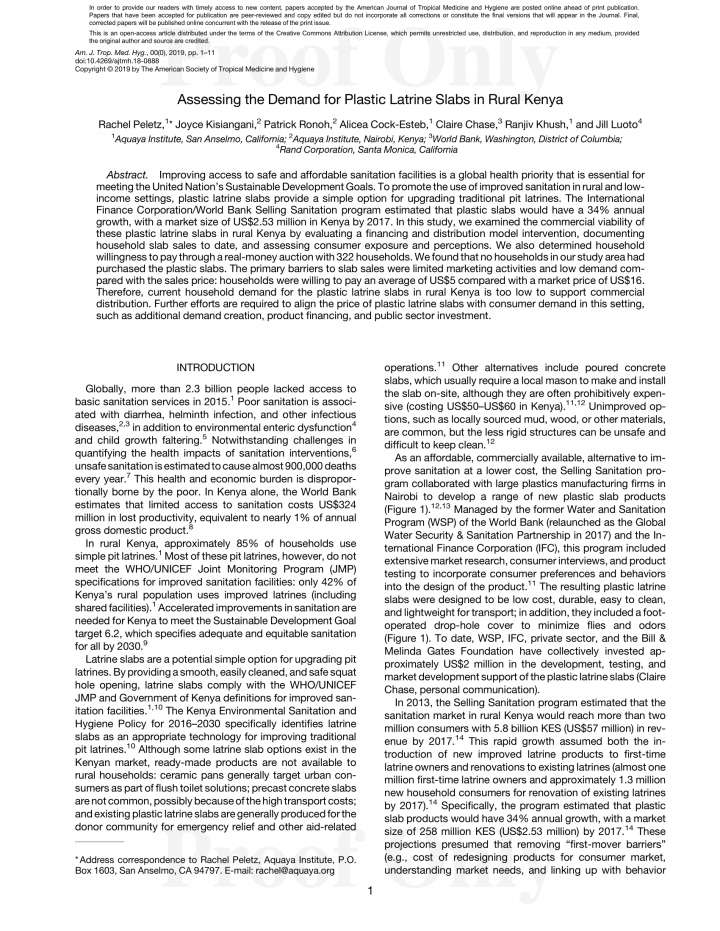Assessing the Demand for Plastic Latrine Slabs in Rural Kenya
Peletz, R., Kisiangani, J., Ronoh, P., Cock-Esteb, A., Chase, C., Khush, R., and Luoto, J. (2019)

Published in: 2019
Pages: 12
Publisher:
Am. J. Trop. Med. Hyg., 00(0), pp. 1–11, doi:10.4269/ajtmh.18-0888
Author:
Peletz, R., Kisiangani, J., Ronoh, P., Cock-Esteb, A., Chase, C., Khush, R., and Luoto, J.
Uploaded by:
Alicea Easthope-Frazer
Partner profile:
Aquaya Institute
2054 Views
51 Downloads
Location of library entry
Improving access to safe and affordable sanitation facilities is a global health priority that is essential for
meeting the United Nation’s Sustainable Development Goals. To promote the use of improved sanitation in rural and low-income settings, plastic latrine slabs provide a simple option for upgrading traditional pit latrines. The International Finance Corporation/World Bank Selling Sanitation program estimated that plastic slabs would have a 34% annual growth, with a market size of US$2.53 million in Kenya by 2017. In this study, we examined the commercial viability of these plastic latrine slabs in rural Kenya by evaluating a financing and distribution model intervention, documenting household slab sales to date, and assessing consumer exposure and perceptions. We also determined household willingness to pay through a real-money auction with 322 households. We found that no households in our study area had purchased the plastic slabs. The primary barriers to slab sales were limited marketing activities and low demand compared with the sales price: households were willing to pay an average of US$5 compared with a market price of US$16. Therefore, current household demand for the plastic latrine slabs in rural Kenya is too low to support commercial distribution. Further efforts are required to align the price of plastic latrine slabs with consumer demand in this setting, such as additional demand creation, product financing, and public sector investment.
Bibliographic information
Peletz, R., Kisiangani, J., Ronoh, P., Cock-Esteb, A., Chase, C., Khush, R., and Luoto, J. (2019). Assessing the Demand for Plastic Latrine Slabs in Rural Kenya. Am. J. Trop. Med. Hyg., 00(0), pp. 1–11, doi:10.4269/ajtmh.18-0888
Filter tags
English Rural Sub-Saharan Africa














